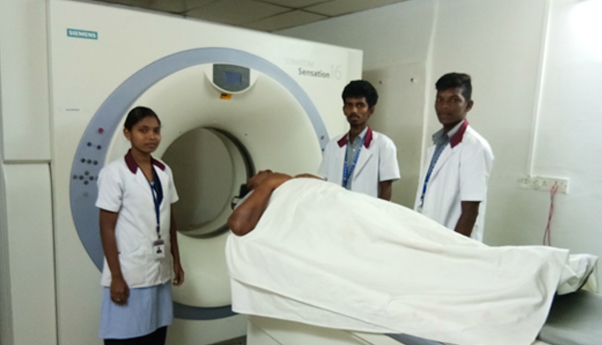UG
B.Sc. Radiology and Imaging Technology
Course Description
Objectives
- Produce a radiographer who is committed to providing a high quality service to the patient/relative/career by assessing and responding to their individual needs whilst maintaining privacy, dignity and respect.
- Emphasize the emerging role of the radiographer who can produce and undertake preliminary clinical evaluations on diagnostic images in a diverse range of clinical situations.
- Produce an autonomous reflective practitioner with the courage to challenge assumptions, question the values, beliefs and policies underpinning the application of medical imaging and contribute to the ongoing development of the profession.
- Develop a radiographer who is committed to continuing professional development and lifelong learning so they can function as a valued member of the multi-professional health care team in a changing health care environment.
Outcomes
At the end of the program, graduates will be able to
- Describe principles of physics and operation of the imaging equipments
- Demonstrate knowledge of specified imaging modalities, relevant anatomy, image quality assurance and diagnostic decision making.
- Perform radiographic procedures ensuring safety of patients and personnel involved
- Operate and maintain commonly used imaging equipment with safety and efficiency.
- Provide sufficient information effectively to the patient about the imaging options available, purpose of the procedure, benefits, possible adverse consequences, and limitations.
- Recognize their role in the health care system and function effectively in a multidisciplinary health care team
- Engage oneself in self-assessment and structure their continuing professional education to refine existing skills and acquire new skills for patient care and professional advancement.
- Practice professional and ethical responsibilities with high degree of credibility, integrity and social concern.






